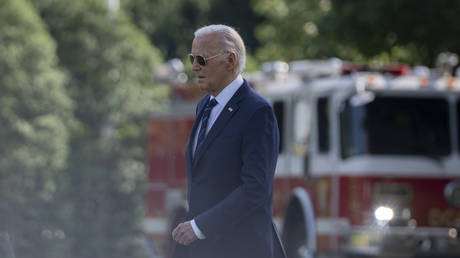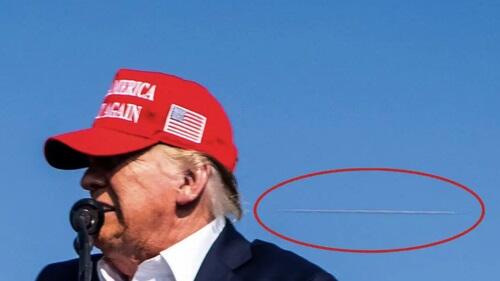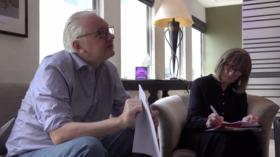If embryos can be kept alive, then embryos are alive.

Kody W. Cooper
Now in its tenth anniversary, this story deserves appreciation as a genuine masterpiece that teaches many enduring truths. Set in some distant future, this nameless “Community” is strictly ordered by a code of rules that prizes uniformity, utility, and an extreme form of safetyism. Holding up a funhouse mirror to our own society, this dystopian novel shows emotions divorced from reality, memory ignorant of history, death for the vulnerable, and the reduction of the traditional family to technocratic “units.”
Ryan Quinn
After writing about the disorder of life and a sad and confusing existence, T.S. Eliot’s conversion to Christianity brought a sense of order to his life and a sense of hopefulness to his work. C.S. Lewis left atheism through a scholarly and logic-based conversion. Lewis and Eliot were not alone—the trend toward conversion among the intelligentsia became prominent. In our own time, we have recently seen Russell Brand, Candace Owens, Rob Schneider, Shia LaBeouf, and Tammy Peterson all convert. A crisis of mistrust in human institutions can lead to nihilism and hedonism, or it can lead those searching for Truth toward a new faith in God.
Dr. Richard DeClue
The fact that Carlo Maria Viganò is guilty of schism and has thus been excommunicated is lamentable. The purpose of making that fact known is to awaken his conscience with the hope that it leads to his repentance. If one denies that the pope is the pope, then one is certainly refusing submission to him. Some readers might already be familiar with Viganò and the long-standing tension between him and the Holy See. Who is Viganò? What is latae sententiae excommunication? And why has Viganò incurred the penalty of excommunication?
Rachel Bulman
I never would have imagined—as a passionate pastor’s kid, daughter of a missionary, and heavily involved Protestant youth—that I would find myself where I am today. But I know that the Eucharist led me here. May we hunger for Christ. Reach for Christ. And may our collective hunger far exceed our reach so much so that all of our lives will be leaning toward eternity with him so that we may finally be filled with the food that we long for.
Larry Chapp
It seems that no matter where one turns these days in the Church, the topic of homosexuality is front and center and is the filter through which almost everything is read. Writer Heidi Schlumpf recently penned an article titled “Would Thomas Aquinas be a Thomist?” in which she lumps together all “conservative Catholics” under the banner of culture war rubes and simpletons seeking “black and white answers” to moral questions that are inherently ambiguous. It is the Church tradition itself that Schlumpf clearly seeks to subvert in order to make room for her LGBTQ revisionism.
Bishop Robert Barron
These slower days of summer provide a greater opportunity to pray, rest in the Lord, and consider the higher and deeper things. I have seen parishes completely revolutionized by the practice of sustained Adoration of the Blessed Sacrament. Take the time to pray! I suggest praying with the Scriptures in the spiritual tradition of lectio divina, use “centering prayer” in a quiet place with you gaze fixed on the Lord in an image or a crucifix, and use nature itself as a prompt to pray. (Léelo en español aquí.)
Dr. Christopher Kaczor
In a recent essay “A Revolution in Understanding the Embryo,” Dr. John Wallingford makes claims that are misleading and confuses moral doctrine and canon law. The Catholic Church has always condemned abortion, not starting in 1869, but from the first century. Medieval authors like Thomas Aquinas and contemporaries like Pope Francis echo this unchanging teaching. Among his claims, Wallingford is also mistaken about a supposed lack of scientific consensus about when an embryo’s life begins.
Michael Humpherys
Among the many financial injustices we see, usury is becoming all the more apparent. The subprime mortgage crash that gave rise to the Financial Crisis undoubtedly involved a great deal of usurious transactions, and today, we are dealing with an ongoing struggle with student loan debt. Fortunately, from the Catholic faith, we have a rich magisterial and intellectual tradition that has something to say about usury and a path forward.
Thomas J. Salerno
In many ways, Pier Giorgio Frassati seemed little different from other young men of the Italian upper middle class. He loved the outdoors and mountain climbing, but he also applied himself assiduously to his college studies and had ambitions of becoming a mining engineer. As a young man, his days were filled with prayer, acts of self-denial, and tireless service among the poor and the marginalized. Perhaps no saint of modern times better personifies the spirit of the Catholic lay apostolate than Pier Giorgio.
Thomas Griffin
Freedom is too often misunderstood and morphed into something of our own making. St. Thomas Aquinas said that freedom is the ability to choose the good. Freedom employed towards the good leads to human flourishing. A common concept of freedom is concerned with being able to do whatever you want, whenever you want, as long as it does not hurt anyone else in the process—or “unhindered liberty.” Christian freedom is a freedom for others, not freedom of self. May we be obedient to the true nature of freedom and live as we were made to live.
Rose Coleman
Amidst the potential flurry of family vacations, reading, side hustles, maintenance projects, planning, and professional development, Catholic school teachers must be mindful stewards of this time, focusing first on faith. To effectively share the richness of the Catholic faith with our students, teachers must first cultivate a deep and vibrant faith within themselves. Here are ten practical ways Catholic school teachers can focus first on faith over the summer in preparation for the coming school year.
Mark Bradford
At the beginning of the twentieth century, Pope St. Pius X ignited a general reform in sacred music with his motu proprio called Tra le sollecitudini in 1903. The emergence of polyphony in the late Middle Ages had distorted the phrasing and rhythm of Gregorian chant, and Pius X encouraged the monks to continue their scholarly research into the original manuscripts to bring it back to its original glory. It is difficult to find a single quote from Tra le sollecitudini that would give the reader an adequate understanding of the task Pius X had before him.
Mark Bradford
As the Council Fathers at the Second Vatican Council stated: “Care must be taken that any new forms adopted should in some way grow organically from forms already existing.” To evaluate or modify the Church’s worship, looking to that past is not nostalgia; it is the only approved and secure way forward. The development of Christian worship, like doctrine, has always been moderated by the Church to ensure that any development was consistent with the cosmic, or inherited, nature of the liturgy. Our history shows that when innovations led music astray, right order was asserted so that the sacred temple was not profaned.
Mark Bradford
A reading of the documents from the Second Vatican Council shows that the council intended something other than what our most common experience has been with music in the liturgy since the 1960s when the revised liturgy was rolled out to parishes. Vatican II did not authorize a radical change in the nature and ethos of Roman Catholic worship. Any vagaries in the documents can be clarified and understood in their context by coming to know the Tradition. To paraphrase Pope St. Pius X and his comment about Gregorian chant, the more music becomes like entertainment, the less it is acceptable for use in the Holy Sacrifice of the Mass.



